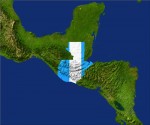 Can a Canadian parent company with a subsidiary operating in a foreign jurisdiction be liable for human rights
violations in the foreign jurisdiction that occur at the level of the subsidiary? Janne Duncan, Michael Torrance and Janet Howard discuss a recent decision in which a Canadian court has
allowed this issue to proceed to trial. Whatever the outcome at trial where issues of liability will ultimately be determined, one thing is clear: international public expectations are changing, and directors and officers of Canadian companies need to be aware of the potential risk of claims by foreign plaintiffs seeking redress for alleged harm committed beyond Canada’s borders.
Can a Canadian parent company with a subsidiary operating in a foreign jurisdiction be liable for human rights
violations in the foreign jurisdiction that occur at the level of the subsidiary? Janne Duncan, Michael Torrance and Janet Howard discuss a recent decision in which a Canadian court has
allowed this issue to proceed to trial. Whatever the outcome at trial where issues of liability will ultimately be determined, one thing is clear: international public expectations are changing, and directors and officers of Canadian companies need to be aware of the potential risk of claims by foreign plaintiffs seeking redress for alleged harm committed beyond Canada’s borders. Translate Lex Sustineo
Showing posts with label fpic. Show all posts
Showing posts with label fpic. Show all posts
Tuesday, September 10, 2013
Corporate liability for human rights violations in Canada?
 Can a Canadian parent company with a subsidiary operating in a foreign jurisdiction be liable for human rights
violations in the foreign jurisdiction that occur at the level of the subsidiary? Janne Duncan, Michael Torrance and Janet Howard discuss a recent decision in which a Canadian court has
allowed this issue to proceed to trial. Whatever the outcome at trial where issues of liability will ultimately be determined, one thing is clear: international public expectations are changing, and directors and officers of Canadian companies need to be aware of the potential risk of claims by foreign plaintiffs seeking redress for alleged harm committed beyond Canada’s borders.
Can a Canadian parent company with a subsidiary operating in a foreign jurisdiction be liable for human rights
violations in the foreign jurisdiction that occur at the level of the subsidiary? Janne Duncan, Michael Torrance and Janet Howard discuss a recent decision in which a Canadian court has
allowed this issue to proceed to trial. Whatever the outcome at trial where issues of liability will ultimately be determined, one thing is clear: international public expectations are changing, and directors and officers of Canadian companies need to be aware of the potential risk of claims by foreign plaintiffs seeking redress for alleged harm committed beyond Canada’s borders.
Labels:
ATS,
CSR,
Equator Principles,
fpic,
free prior and informed consent,
global compact;,
human rights,
IFC Performance Standards,
indigenous rights,
labour,
mining,
project finance,
stakeholder
Wednesday, July 10, 2013
Human Rights Due Diligence in International Finance
 Revisions to the Equator Principles (EP) have created new requirements for businesses to conduct human rights due diligence in order to qualify for financing from 79 of the world’s largest financial institutions. The EP apply globally to all project financing with a value of over $10 million and to certain types of corporate loans, bridge loans and project finance advisory services. This development brings the importance of human rights due diligence beyond reputational risk management and ties it directly to access to capital for many companies. It also significantly increases the significance of human rights considerations for the financial industry.
Revisions to the Equator Principles (EP) have created new requirements for businesses to conduct human rights due diligence in order to qualify for financing from 79 of the world’s largest financial institutions. The EP apply globally to all project financing with a value of over $10 million and to certain types of corporate loans, bridge loans and project finance advisory services. This development brings the importance of human rights due diligence beyond reputational risk management and ties it directly to access to capital for many companies. It also significantly increases the significance of human rights considerations for the financial industry.Wednesday, May 29, 2013
Managing Lender Liability in Equator Principles Implementation - Third Party Beneficiary Rights in Contract Law
 I read an interesting and provocative journal article by Marissa Marco, published in the Fordham International Law Journal in 2011, entitled "Accountability in International Project Finance: The Equator Principles and the Creation of Third-Party Beneficiary Status for Project-Affected Communities". The article discusses the law on third party beneficiary rights under US contract law and considers whether the provisions of the Equator Principles (EP) relating to Affected Communities might create enforceable rights for those communities under those principles.
I read an interesting and provocative journal article by Marissa Marco, published in the Fordham International Law Journal in 2011, entitled "Accountability in International Project Finance: The Equator Principles and the Creation of Third-Party Beneficiary Status for Project-Affected Communities". The article discusses the law on third party beneficiary rights under US contract law and considers whether the provisions of the Equator Principles (EP) relating to Affected Communities might create enforceable rights for those communities under those principles.This article will discuss this issue and suggest a risk management strategy for EP Financial Institutions (EPFI - i.e. EP signatories) addressing and managing such risks in Equator Principles implementation.
Sunday, April 28, 2013
Equator Principles Banks: The New Global Regulators of Environmental and Social Performance
 So, you are confident you can make a business case to your financier as to why they ought to invest in your mining project. You are also sure your project will meet regulatory requirements of local governments. It is a good start, but thanks to a paradigm shift in global regulation of mining activity, it is probably not enough. To get a project off the ground, many mining proponents will also need to demonstrate compliance with the environmental and social regulations of their financiers in accordance with the Equator Principles (EP).
So, you are confident you can make a business case to your financier as to why they ought to invest in your mining project. You are also sure your project will meet regulatory requirements of local governments. It is a good start, but thanks to a paradigm shift in global regulation of mining activity, it is probably not enough. To get a project off the ground, many mining proponents will also need to demonstrate compliance with the environmental and social regulations of their financiers in accordance with the Equator Principles (EP). Thursday, April 4, 2013
Keewatin v Ontario: Court of Appeal affirms Ontario’s unilateral ability to take up treaty lands
 Jocelyn Kearney of Norton Rose, one of the authors of IFC Performance Standards on Environmental and Social Sustainability: A Guidebook, writes about a recent key decision of the Ontario Court of Appeal that will have implications for the understanding of indigenous rights and the duty to consult in Canada.
This development should be of interest to Equator Principles banks grappling with the meaning of Free Prior and Informed Consent, which is now part of the IFC Performance Standards requirements, which must be interpreted with consideration to the well developed legal concepts from which its meaning derives.
Jocelyn Kearney of Norton Rose, one of the authors of IFC Performance Standards on Environmental and Social Sustainability: A Guidebook, writes about a recent key decision of the Ontario Court of Appeal that will have implications for the understanding of indigenous rights and the duty to consult in Canada.
This development should be of interest to Equator Principles banks grappling with the meaning of Free Prior and Informed Consent, which is now part of the IFC Performance Standards requirements, which must be interpreted with consideration to the well developed legal concepts from which its meaning derives.Wednesday, March 6, 2013
PDAC: Community demands of mining companies to increase
Reporting from the PDAC conference in Toronto, the Mining Journal published the following this week:
Community demands of how mining companies share the economic benefits from natural resources will continue to increase, according to the International Finance Corporation (IFC), the World Bank’s private lender.
The warning came from Tom Butler, the global head of mining at IFC who was speaking at the Prospectors & Developers Association of Canada 2013 convention in Toronto. Butler said the mining sector had done a great deal in managing social risks, but indigenous communities would expect more in the future.
Community demands of how mining companies share the economic benefits from natural resources will continue to increase, according to the International Finance Corporation (IFC), the World Bank’s private lender.
The warning came from Tom Butler, the global head of mining at IFC who was speaking at the Prospectors & Developers Association of Canada 2013 convention in Toronto. Butler said the mining sector had done a great deal in managing social risks, but indigenous communities would expect more in the future.
Wednesday, February 6, 2013
Understanding "Consent" in Free Prior and Informed Consent (FPIC) of Indigenous Peoples - Implications for the IFC Performance Standards and Equator Principles
This article considers the meaning of "consent" in Free Prior and Informed Consent (FPIC) applied to an Equator Principles governed project where the IFC Performance Standards on Environmental and Social Sustainability (the Performance Standards) apply. The contents are derived from a chapter by Pierre-Christian Labeau in the book IFC Performance Standards on Environmental and Social Sustainability: A Guidebook.
Subscribe to:
Posts (Atom)
